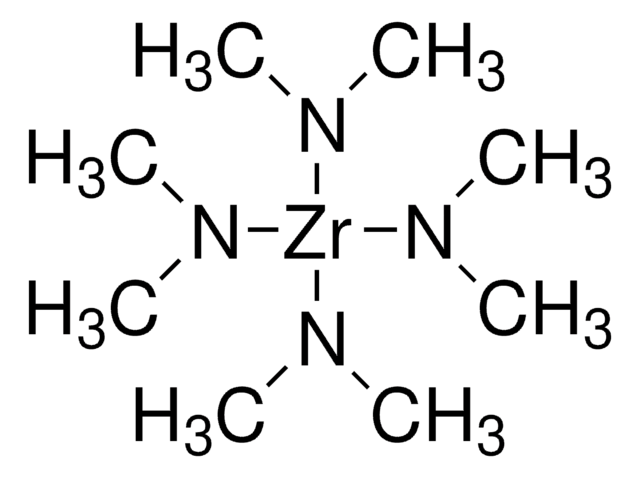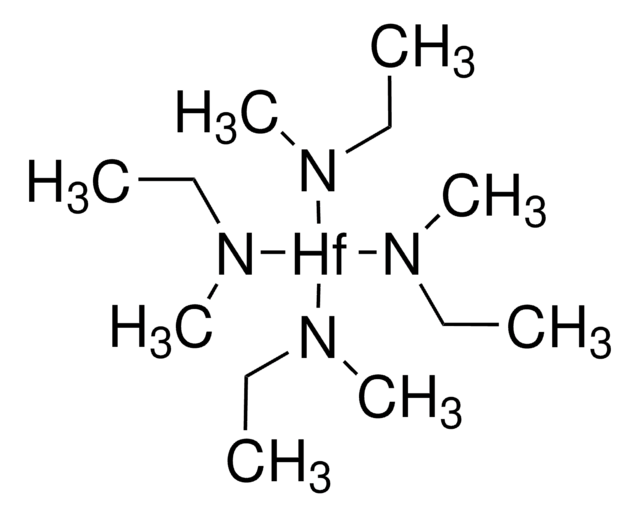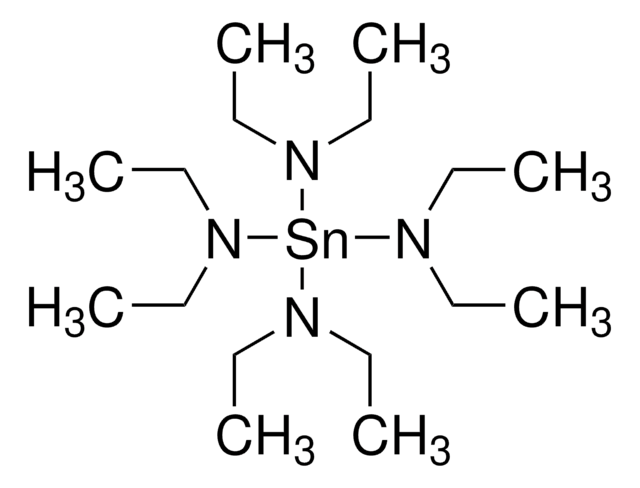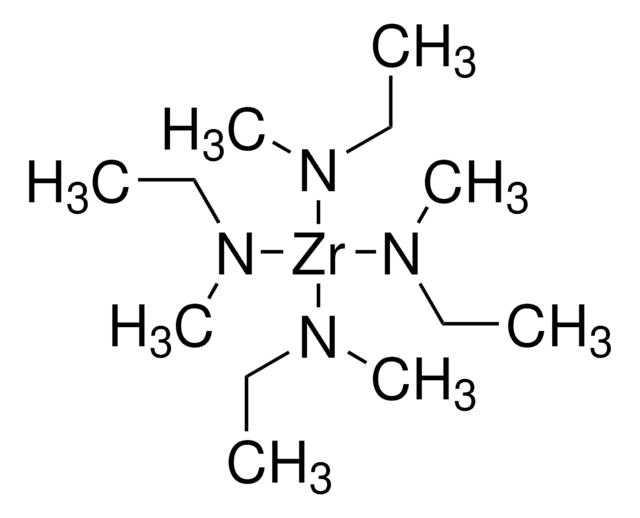698431
Tetrakis(dimethylamido)tin(IV)
99.9% trace metals basis
Synonym(s):
Tin(IV) dimethylamide
About This Item
Recommended Products
Quality Level
Assay
99.9% trace metals basis
form
liquid
reaction suitability
core: tin
SMILES string
CN(C)[Sn](N(C)C)(N(C)C)N(C)C
InChI
1S/4C2H6N.Sn/c4*1-3-2;/h4*1-2H3;/q4*-1;+4
InChI key
WHXTVQNIFGXMSB-UHFFFAOYSA-N
Looking for similar products? Visit Product Comparison Guide
General description
Signal Word
Danger
Hazard Statements
Precautionary Statements
Hazard Classifications
Acute Tox. 4 Oral - Flam. Liq. 2 - Skin Corr. 1B
Storage Class Code
3 - Flammable liquids
WGK
WGK 3
Flash Point(F)
18.0 °F - closed cup
Flash Point(C)
-7.8 °C - closed cup
Personal Protective Equipment
Regulatory Listings
Regulatory Listings are mainly provided for chemical products. Only limited information can be provided here for non-chemical products. No entry means none of the components are listed. It is the user’s obligation to ensure the safe and legal use of the product.
FSL
Group 4: Flammable liquids
Type 1 petroleums
Hazardous rank II
Water insoluble liquid
ISHL Indicated Name
Substances Subject to be Indicated Names
ISHL Notified Names
Substances Subject to be Notified Names
JAN Code
698431-1G:4548173956152
698431-BULK:
698431-5G:4548173351988
698431-VAR:
Choose from one of the most recent versions:
Already Own This Product?
Find documentation for the products that you have recently purchased in the Document Library.
Articles
High Purity Metalorganic Precursors for CPV Device Fabrication
Our team of scientists has experience in all areas of research including Life Science, Material Science, Chemical Synthesis, Chromatography, Analytical and many others.
Contact Technical Service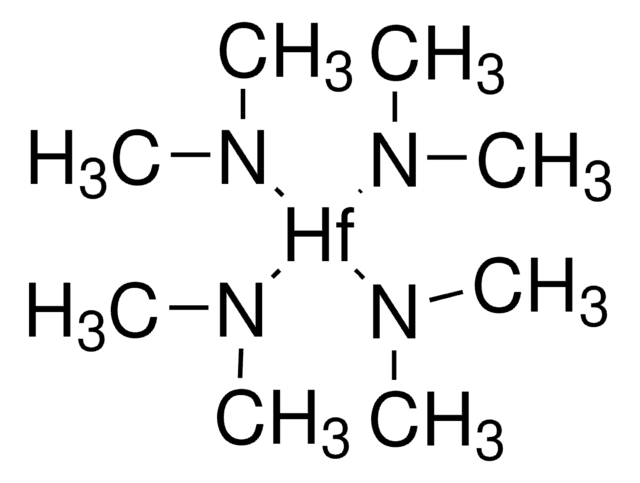
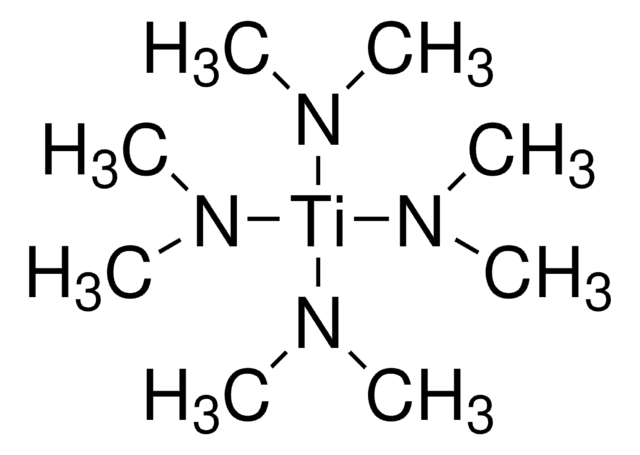
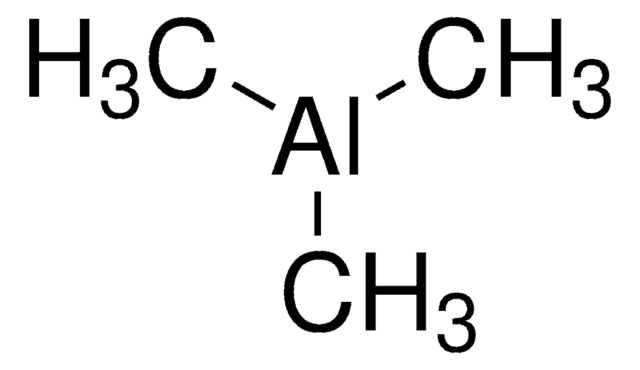
![Bis(trimethylaluminum)-1,4-diazabicyclo[2.2.2]octane adduct](/deepweb/assets/sigmaaldrich/product/structures/978/293/6c8c7fbe-4b40-4576-bd40-94ac58cbe057/640/6c8c7fbe-4b40-4576-bd40-94ac58cbe057.png)
